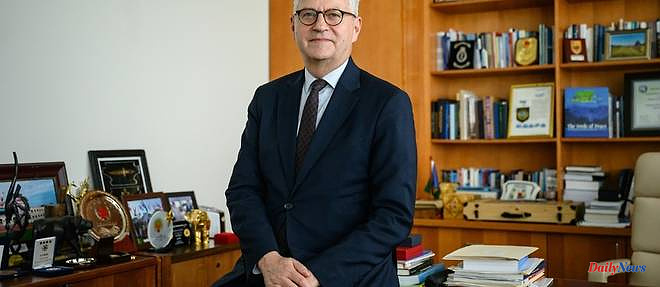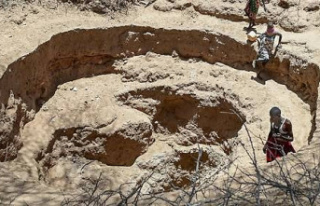The boss of United Nations peace operations, embodied by the blue helmets, castigates the "divisions" between great powers in the UN Security Council, weakening these peacekeeping forces which will be 75 years old on Monday.
In an interview with AFP in New York, Jean-Pierre Lacroix, Deputy Secretary General of the United Nations since 2017, however boasts "the long list" of countries, especially in Africa, which according to him have benefited from the "million men and women who have served under the flag of the United Nations" since 1948.
Every May 29 marks the "International Day of United Nations Peacekeepers" created in 2002 by the General Assembly because, on May 29, 1948, the Security Council established the first peacekeeping operation: the United Nations Organization responsible for monitoring the truce in the Middle East (Onust).
This year, due to the long holiday weekend in the United States for Memorial Day, the UN celebrates this Thursday this 75th anniversary, in particular in memory of the "3,800 Blue Helmets (who) lost their lives in the service of peace " since 1948.
Today, laments Jean-Pierre Lacroix, "we suffer from the fact that our member states are divided", nearly 80 years after the creation of the United Nations at the end of the Second World War and while the Security Council is paralyzed. for at least ten years by the antagonisms between the United States, Russia and China.
And even if the Council regularly renews the mandates of peacekeeping missions, the UN diplomat calls for "more unity among member states so that they can weigh in an active and united manner on the implementation of peace agreements. and political processes".
Because the UN now has "more difficulty in achieving the ultimate objectives of peacekeeping: to deploy, to support the implementation of a peace agreement and then to leave gradually", regrets this 63-year-old former French ambassador. .
Twelve peace operations are currently deployed around the world -- Lebanon, Mali, Democratic Republic of Congo, Cyprus, India and Pakistan among others -- and "the list of countries that have regained stability is long", argues Mr. Lacroix, citing Côte d'Ivoire, Liberia, Sierra Leone, Angola and Cambodia, in the 1990s and 2000s.
But, he breathes, "the international community was much more united at the time and the political processes in these countries had been implemented with the active and united support of our member states".
Expensive and increasingly contested, particularly in Africa, peacekeeping missions can also be extremely perilous militarily and diplomatically, like the Stabilization Mission in Mali (Minusma).
In this country of the Sahel, the French soldiers of Operation Barkhane left in 2022 under the pressure of a hostile junta which, even if it denies it, called on the Russian mercenaries of the Wagner group.
Germany, the largest contributor to Minusma with a thousand peacekeepers, confirmed in early May the withdrawal of its troops within a year.
With a total of some 12,000 peacekeepers deployed, this UN mission has suffered the most casualties in the world in recent years. Since its creation in 2013, 185 of its members have died in hostile acts.
So, is the Minusma threatened?
Jean-Pierre Lacroix "does not think so", highlighting "regular and transparent relations with the Malian authorities" and "demonstrations of support for Minusma in regions" of Mali.
For the head of United Nations peace operations, "the vast majority of" neighboring states and the 15 members of the Security Council "consider that Minusma continues to play an important role whether it is support for the political process of transition (...) or the protection of civilians".
05/25/2023 06:30:03 - United Nations (United States) (AFP) - © 2023 AFP












